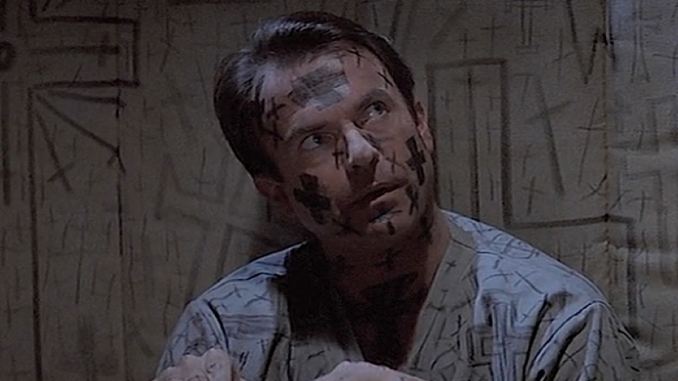In Praise of Sam Neill, Horror’s Underrated Scream King

Over the course of his nearly 50-year career, Sam Neill has been known for many things. After starting out as a darling of the burgeoning Australian New Wave thanks to films like My Brilliant Career, he slowly found his way to Hollywood while keeping one foot firmly in his home continent. For generations of film lovers, he’ll always be Dr. Alan Grant in the Jurassic Park series, the cynical hero who survived many a dinosaur plague. Nowadays, as he approaches his 75th birthday, he’s happy to lounge around his vineyard with his many animals, all named after co-stars, while drinking a glass of Riesling. It’s a good life. Still, it’s strange how such a ubiquitous actor, the star of one of the biggest films of all time, has become curiously underrated. His most intriguing legacy, that as a horror star, is all but ignored. That needs to be rectified: Sam Neill is one of our most fascinating scream kings.
We all know what being a scream queen entails. It’s as crucial a part of the horror genre as blood, knives and jump scares. For as long as horror has been on the big screen, it’s been led by women shrieking in fear, revenge or fury. The specific trope of the scream queen is focused on a woman—usually younger, but that has changed in recent years—forced to confront the ultimate evil and outlast everyone else. We think of horror heroines as feisty, quietly clever, in possession of a dark streak. The scream king isn’t a direct parallel to its female companion, partly because the notion of a guy needing to break through the cinematic glass ceiling is mostly laughable. Still, the ways that certain actors who frequent horror embody certain kinds of gender and genre ideas is intriguing in its own right.
Consider Bruce Campbell as Ash in the Evil Dead saga, a wisecracking and occasionally panic-stricken hero who is simultaneously the ideal tough guy and a subversion of it. Patrick Wilson was named a scream king by the New York Times for his work in the Conjuring series, where he utilizes his classical training to bring emotional weight and real stakes to his role as a paranormal investigator of true evil. Both actors are handsome and can be the kind of masculine ideal that Hollywood so heavily fetishizes, but in horror, they’re able to be weirder, more tender, less concerned with measuring their dicks as they take on the terrors of the day. Ultimately, they are heroes. Sam Neill is seldom so.
If Campbell and Wilson are battling the powers of darkness, Neill is staring head-first into oblivion, becoming slowly consumed by it. In horror films, he’s not likely to be found stalking a killer or saving the world from ruin. He’s far more commonly seen causing chaos or being its victim. His debut in the genre, a mere two years after breaking out in My Brilliant Career, was as the Antichrist himself, the adult Damien Thorn in The Omen III: The Final Conflict. Fittingly for the beginning of the Reagan era, Neill’s Damien is a debonair CEO-turned-ambassador—a figure of monied power who would, in retrospect, clearly be the Antichrist but at the time just seemed like the alpha yuppie. Basically, Patrick Bateman if he had some initiative.
Neill embodies a kind of inner steel, a smarmy self-confidence that at first seems unshakable. Our first introduction to Alan Grant in Jurassic Park has him essentially terrorizing a child with a claw for doubting his academic theory. With Neill, you’d follow him to safety but be kind of aggravated that he’s in the right the entire time. It’s partly what makes his descents into madness so fascinating to watch.
-

-

-

-

-

-

-

-

-

-

-

-

-

-

-

-

-

-

-

-

-

-

-

-

-

-

-

-

-

-

-

-

-

-

-

-

-

-

-

-








































